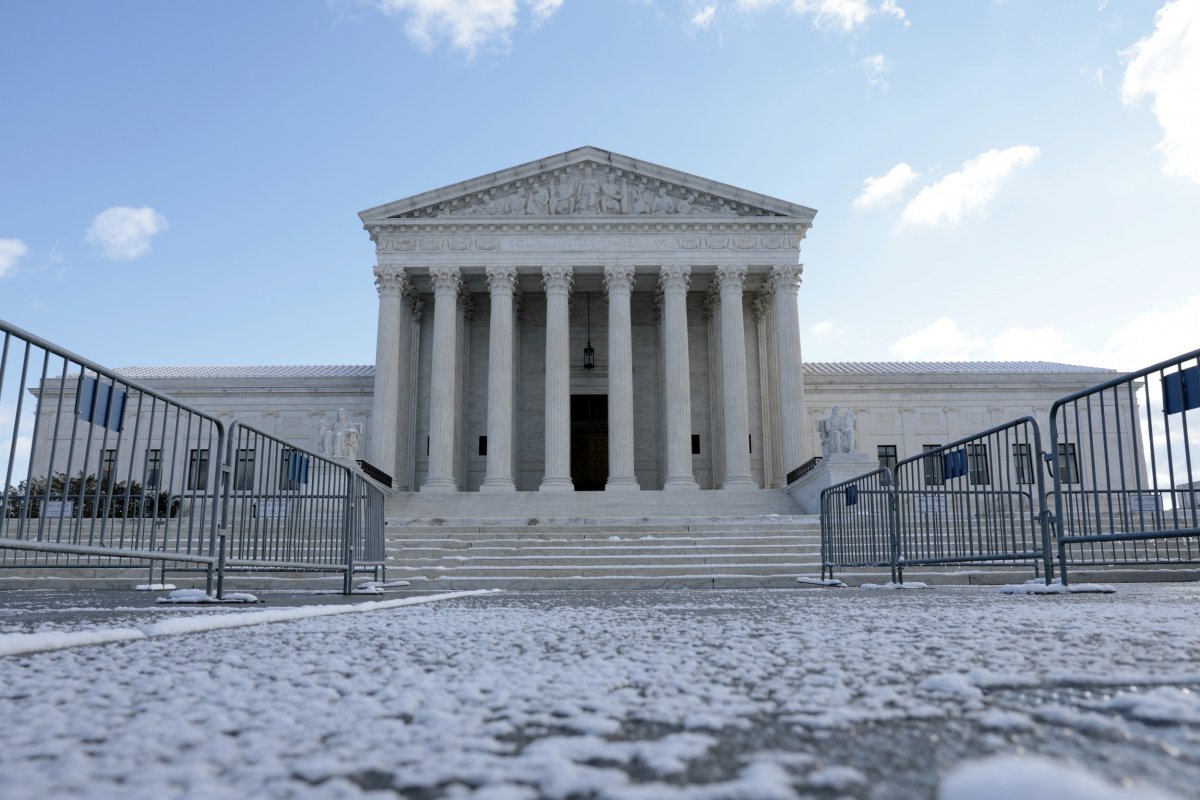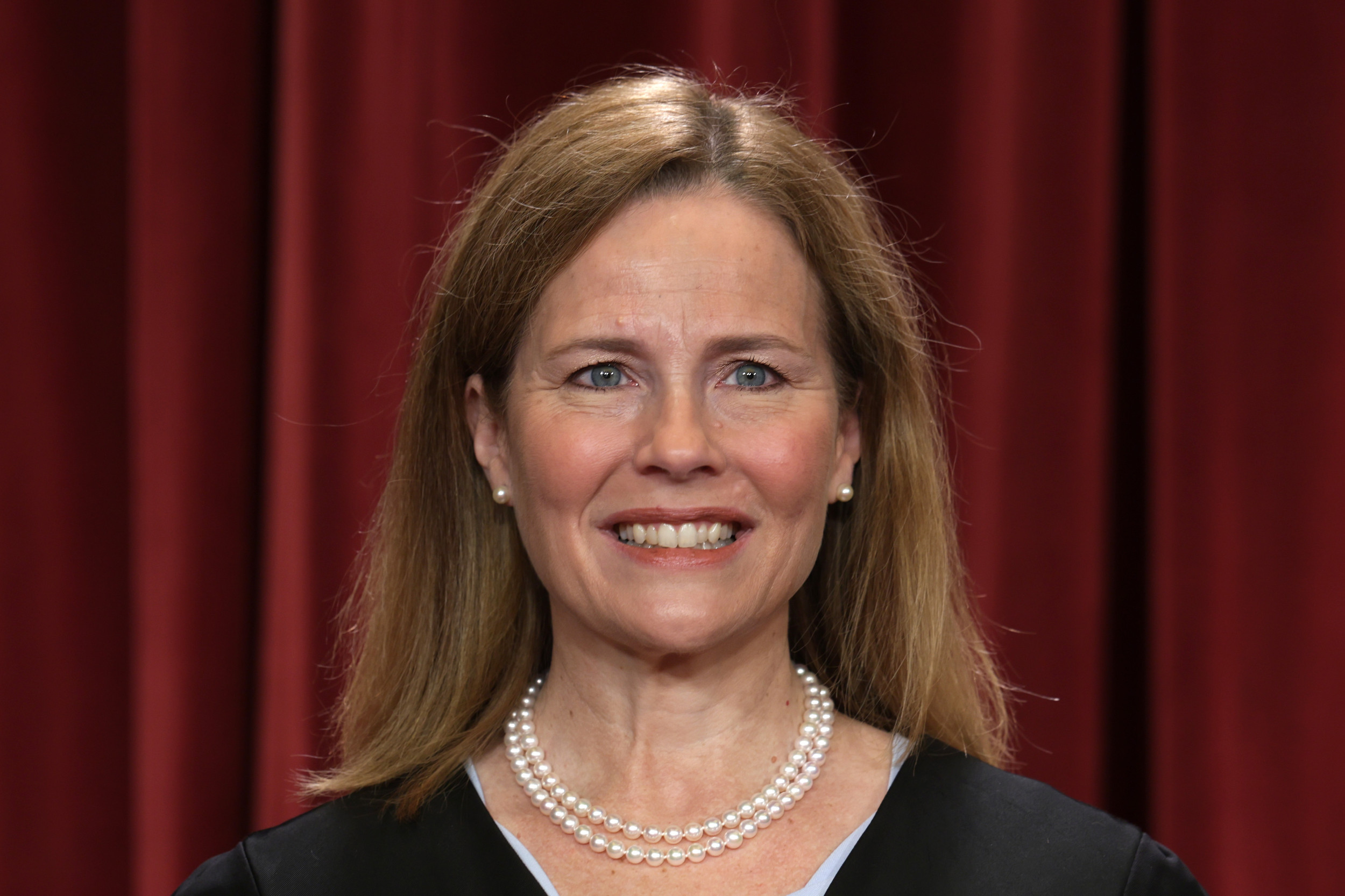Based on Friday's Supreme Court oral argument, it seems that sanity will prevail and the justices will block the federal private-sector vaccine mandate, an "emergency" standard the Occupational Safety and Health Administration announced in November. Just as the Court blocked the Centers for Disease Control's eviction moratorium last summer, six justices are now clearly troubled by a claim of sweeping regulatory authority based on flimsy statutory text.
The federal government's power to regulate its own employees (including servicemen), or those it funds through programs like Medicare and Medicaid—the subject of a case argued the same day—is on stronger ground. But all these issues are different from those courts have confronted with regard to state and municipal mandates and restrictions, whether in the context of religious services, business operations or vaccination requirements. That's because state governments have different sorts of powers than the federal government has, so lawsuits against their exercise have claimed infringements on individual rights—rather than, as with OSHA and the CDC, claiming that an agency has exceeded the scope of its authority.
That is, it's axiomatic to the American system of government that sovereignty is divided such that states wield power in their domains, while Washington, D.C. governs national issues like defense and interstate commerce. Modern constitutional law has blurred that distinction and expanded federal power, but there's still no question that the Virginia Department of Labor could impose an occupational vaccine mandate in my home state, while OSHA's attempt to do so has literally become a federal case.
To put a finer point on it, federal lawmaking powers are constitutionally enumerated—and thus limited to those listed in Article I, Section 8—while states enjoy a broader "police power" to regulate on behalf of public health, safety, welfare and morals. To hold that a state vaccine mandate can be constitutional, as the Supreme Court did in the 1905 case of Jacobson v. Massachusetts, doesn't begin to answer the question of whether a federal agency has statutory authority to impose one. And to hold that federal regulation of workplace conditions is constitutional doesn't begin to answer the question of whether and how OSHA can address viral threats that aren't specific to the workplace.
Sadly, the debate over the Biden administration's pandemic response has shown that many purportedly intelligent commentators somehow miss those basic points of Con Law 101 (and perhaps Civics 101). And it's not just Twitter lawyers who need remedial education. Justice Sonia Sotomayor—even setting aside her various factual errors or likening infected humans to "machines spewing sparks"—seems to think that there's a federal "police power," at least as long as OSHA itself is constitutional.
"So, if it's within the police power to protect the health and welfare of workers, you seem to be saying the states can do it, but you're saying the federal government can't even though it's facing the same crisis," she commented to Ohio's solicitor general during Friday's oral argument. "I'm not sure I understand the distinction why the states would have the power, but the federal government wouldn't," because OSHA has "a police power to protect workers."

With apologies to the wise Latina, no part of the federal government has any police power—whether over workers or otherwise. Not even federal law enforcement agencies, as opposed to their state and municipal counterparts, have any inherent authority to protect public safety. Congress gave OSHA specific regulatory powers, which is why Justice Neil Gorsuch, among others, was dubious of claims of sweeping administrative authority in a novel circumstance based on vague (or what Justice Brett Kavanaugh called "cryptic") statutory language.
Indeed, it's widely accepted that the federal government can't simply impose a general vaccine mandate, which is why White House Chief of Staff Ron Klain tweeted back in September that the OSHA rule would be the "ultimate work-around" such a constitutional limit. None other than the mercurial Chief Justice John Roberts was himself skeptical of such a "work-around."
Moreover, the Supreme Court strives mightily to avoid constitutional clashes, which is why there was significant discussion of the "major question doctrine" (sometimes known as the "major rule doctrine"), which holds that Congress must speak clearly when giving significant authority to administrative agencies. As the late Justice Antonin Scalia put it 20 years ago, Congress doesn't "hide elephants in mouseholes." Here that means that, much as the Court found in blocking the CDC's eviction moratorium, a minor or ancillary provision shouldn't be read to delegate the awesome power of imposing vaccines on more than 100 million Americans, significantly disrupting our economy.
Several justices invoked that doctrine—and perhaps they'll also be thinking of another doctrine of the same name, which suggests that rather than deferring to agency interpretations when significant regulations are at issue, courts must determine correct readings for themselves. This is what Chief Justice Roberts infamously did in King v. Burwell (2015), finding that an Obamacare provision referencing an "exchange established by the state" included both state and federal health insurance exchanges. Meanwhile, Justice Amy Coney Barrett, widely considered to be the deciding vote, expressed concern that the OSHA mandate was written too broadly—for example, covering some outdoor workers but not all indoor workers—and didn't follow normal procedures. (Indeed, OSHA's "emergency" standards tend to fail in court more often than not.)
In short, the federal government has some power to impose vaccine mandates—such as on its own workers, and so long as there are applicable religious and medical exemptions—but the devil is always in the details and the federal government can't act in an arbitrary or unreasoned manner. Given that no federal agency can impose a general mandate, precisely because the federal government lacks a police power, OSHA's "work-around" is just an attempted short-circuiting of the law.
Ilya Shapiro is a vice president at the Cato Institute, director of Cato's Robert A. Levy Center for Constitutional Studies and author of Supreme Disorder: Judicial Nominations and the Politics of America's Highest Court.
The views expressed in this article are the writer's own.
Uncommon Knowledge
Newsweek is committed to challenging conventional wisdom and finding connections in the search for common ground.
Newsweek is committed to challenging conventional wisdom and finding connections in the search for common ground.
About the writer
To read how Newsweek uses AI as a newsroom tool, Click here.








